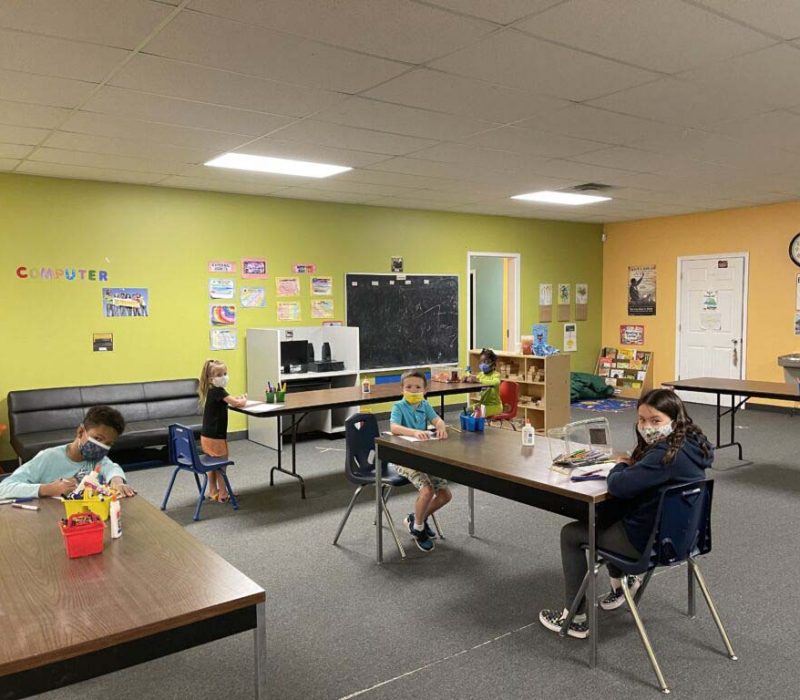School Age Academy
Important goals of preschool programs are to help children acquire social skills and giving them the tools they need before school entry.
Nurturing Growth Before and After School
The School Age Academy Care Program
Quality care for ages 5-12 for Before & After School, School Closings & Breaks
Benefits
- Affordable Tuition
- Before and After School transportation available
- Safe and nurturing environment
- Enrichment curriculum
- Games, arts & crafts, wii, computers
- Qualified & Passionate Teachers
- Services are available when your child's elementary school is closed due to teacher workshops, inclement weather, and school breaks
Before School
Reliable and safe care for your school age child is a necessity for families with busy morning schedules. We are here to make sure children have an opportunity to ease themselves in their school day. Your child will love starting their day with friends. Each morning your child will have a nutritious breakfast before off to school. Transportation is also available if your child’s school does not provide transportation to and from school.


After School
Our After School Program picks up where your child’s school leaves off. Our talented teachers will provide fun, hands-on experiences that will foster your child’s imagination, growth, and development. Homework assistance is also available. Transportation is also available if your child’s school does not provide transportation to and from school.
Snow Emergency Days
Holidays and School Vacations
The Center will also provide care for school-age children when public schools are closed due to observed holidays, as well as during spring and summer breaks, on a sign-up basis.
Curriculum
Ohio Academic Content Standards define what children should know and be able to do at every grade level. The standards are in English language Arts (reading & writing), mathematics, science, and social studies. These standards let teachers know what they are expected to teach and what each child should learn.
The standards are addressed in the our program’s Homework Club activities and in the Alternative Programs’ lessons, activities and choice time stations.
The Cincy curriculum design is grounded in a process called Appreciative Inquiry. Appreciative Inquiry, developed by David C. Cooperrider of Case Western School of Management, is a strength-based process focused on “finding out what works and getting more of it” rather than “finding out what the problems are and getting rid of them.”
Three sections of the curriculum are specific to the Appreciative Inquiry process.
- The Snack and Chat time during which Cincy leaders (aka Tribe Leaders) will in inquire about the day’s happenings from an appreciative perspective.
- Each lesson has an Appreciative Inquiry section geared to helping the students consider their own positive experiences related to the day’s lesson.
- Family Involvement will encourage the parent and child relationship.
“The Developmental Assets® are 40 research-based, positive experiences and qualities that influence young people’s development, helping them become caring, responsible, and productive adults. Based in youth development, resiliency, and prevention research, the Developmental Assets framework has proven to be effective and has become the most widely used approach to positive youth development in the United States and, increasingly, around the world. The framework has been adapted to be developmentally relevant from early childhood through adolescence.”
The framework of the assets is categorized in two groups of 20 assets: external assets which children receive from the world around them and internal assets that reflect positive internal growth. Research indicates that the assets are a tremendous tool in raising student achievement and reducing risk-taking behavior.

| Ages | 5-12 years |
| Ratio of Teachers to Children | 1 teacher for 16 children |
| Number of Children in Classroom | 24 |
| Curriculum | Cincy After School |
| Sample Schedule | Before & After School |
